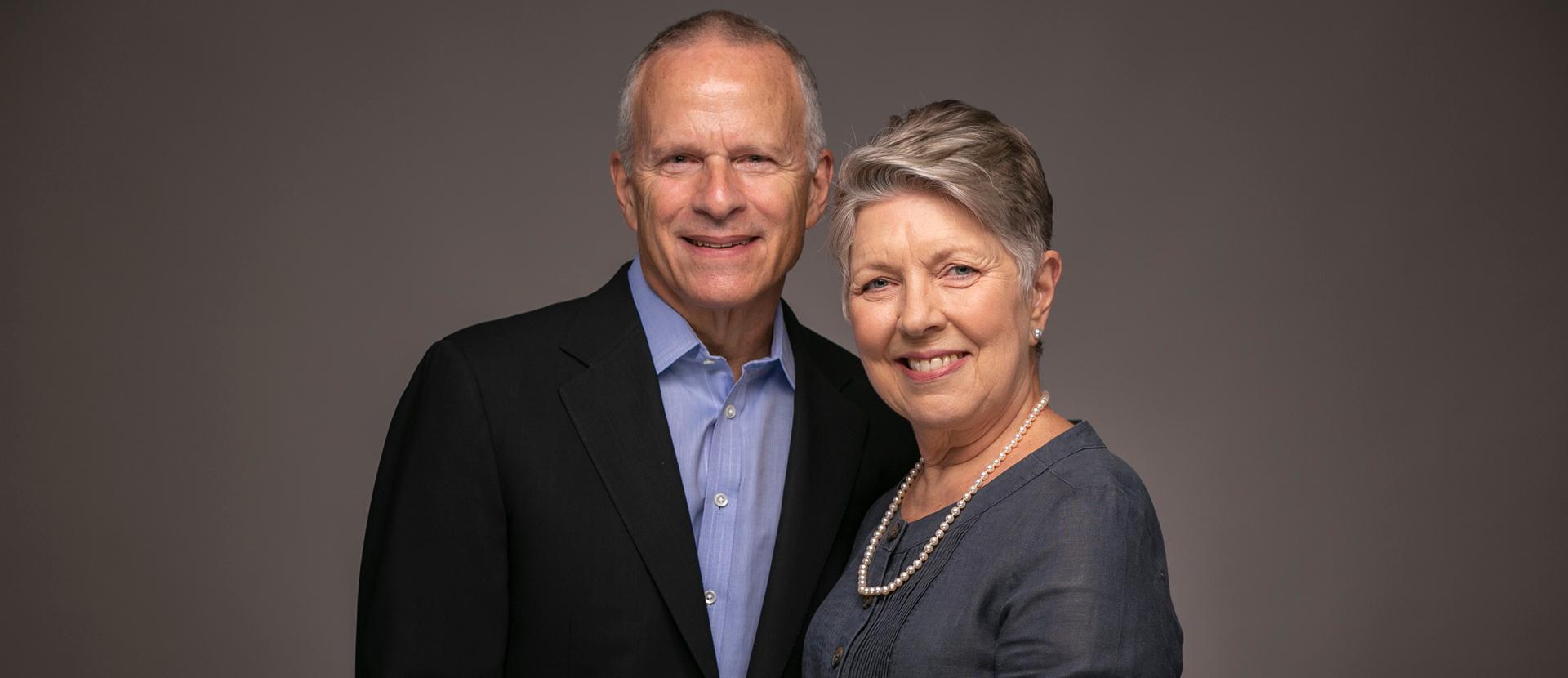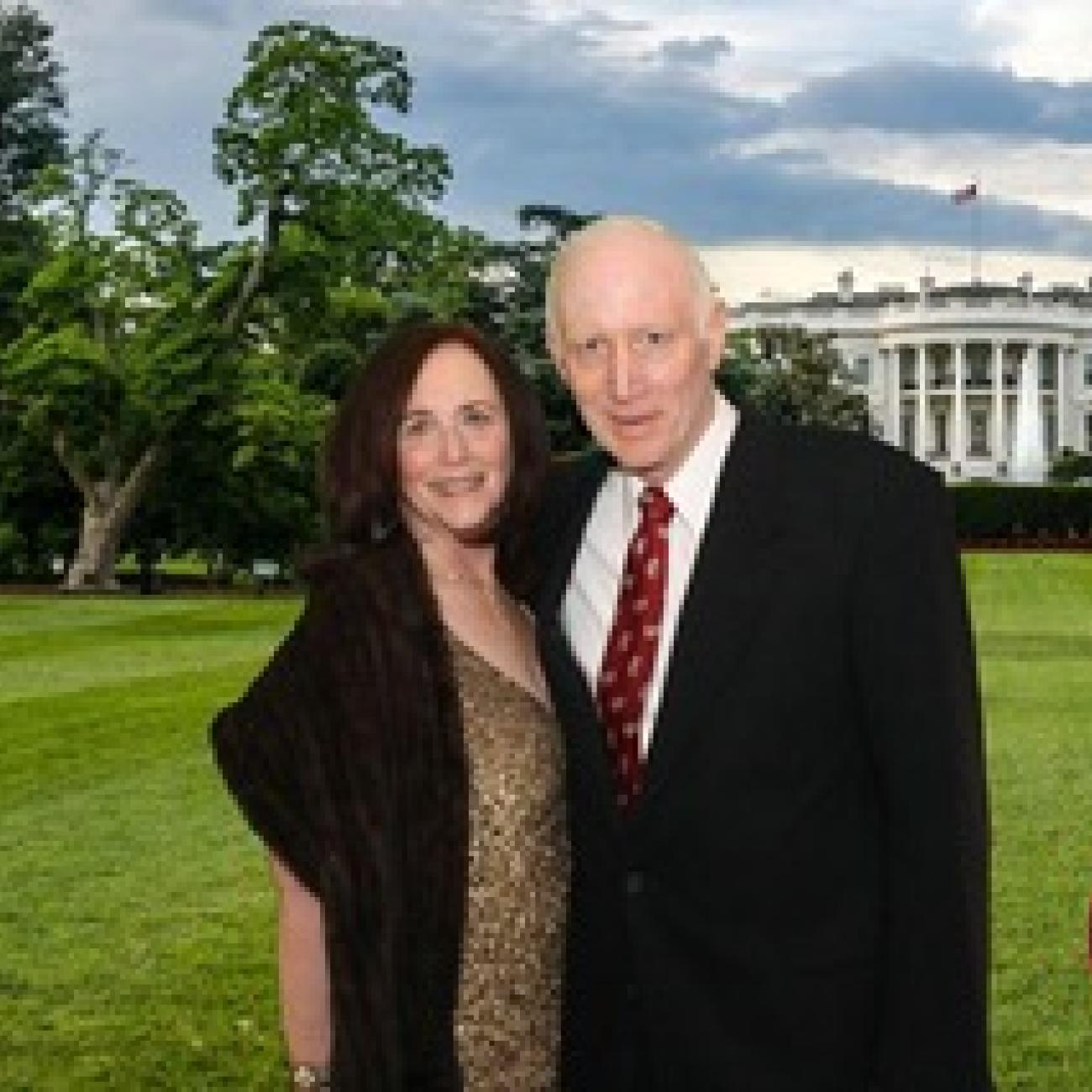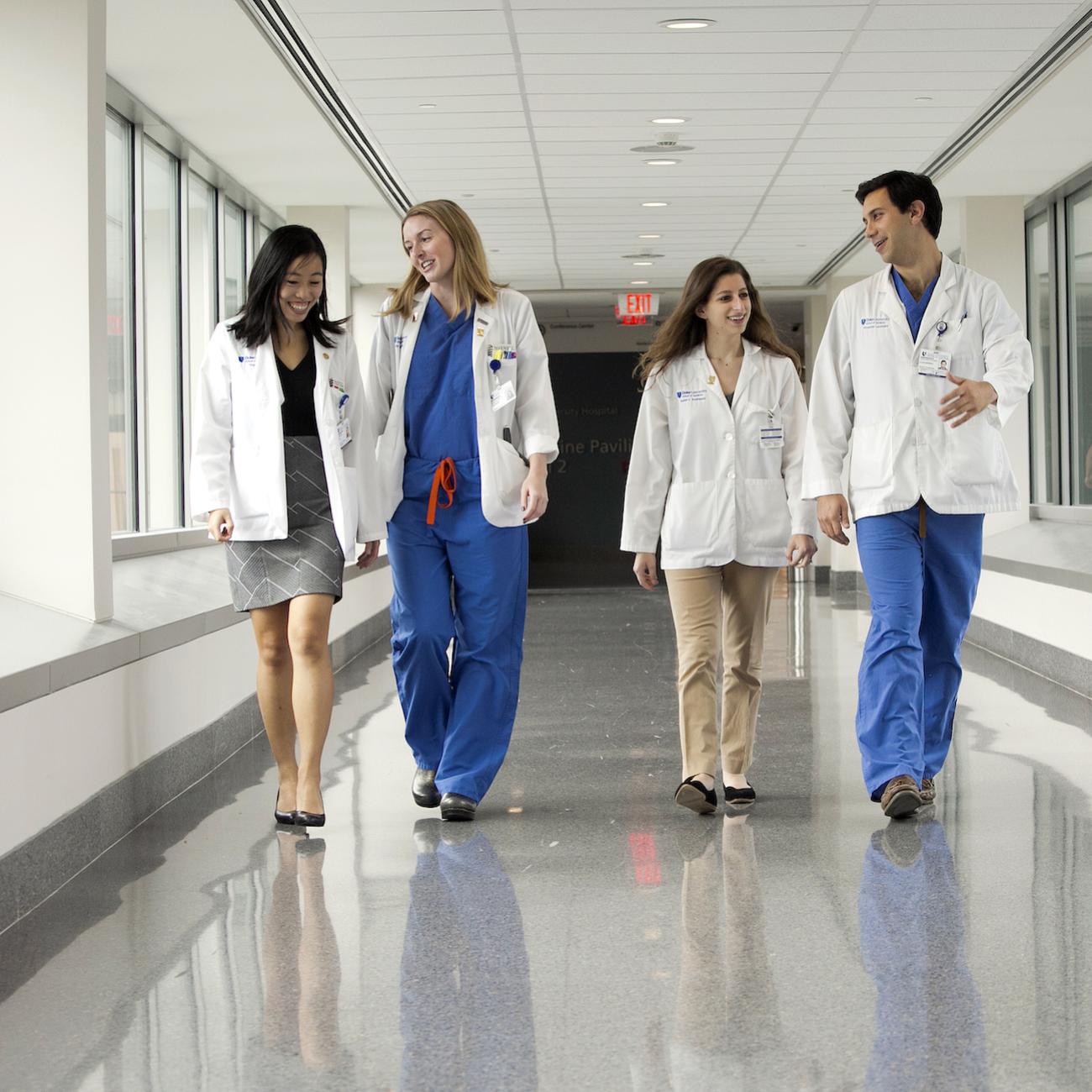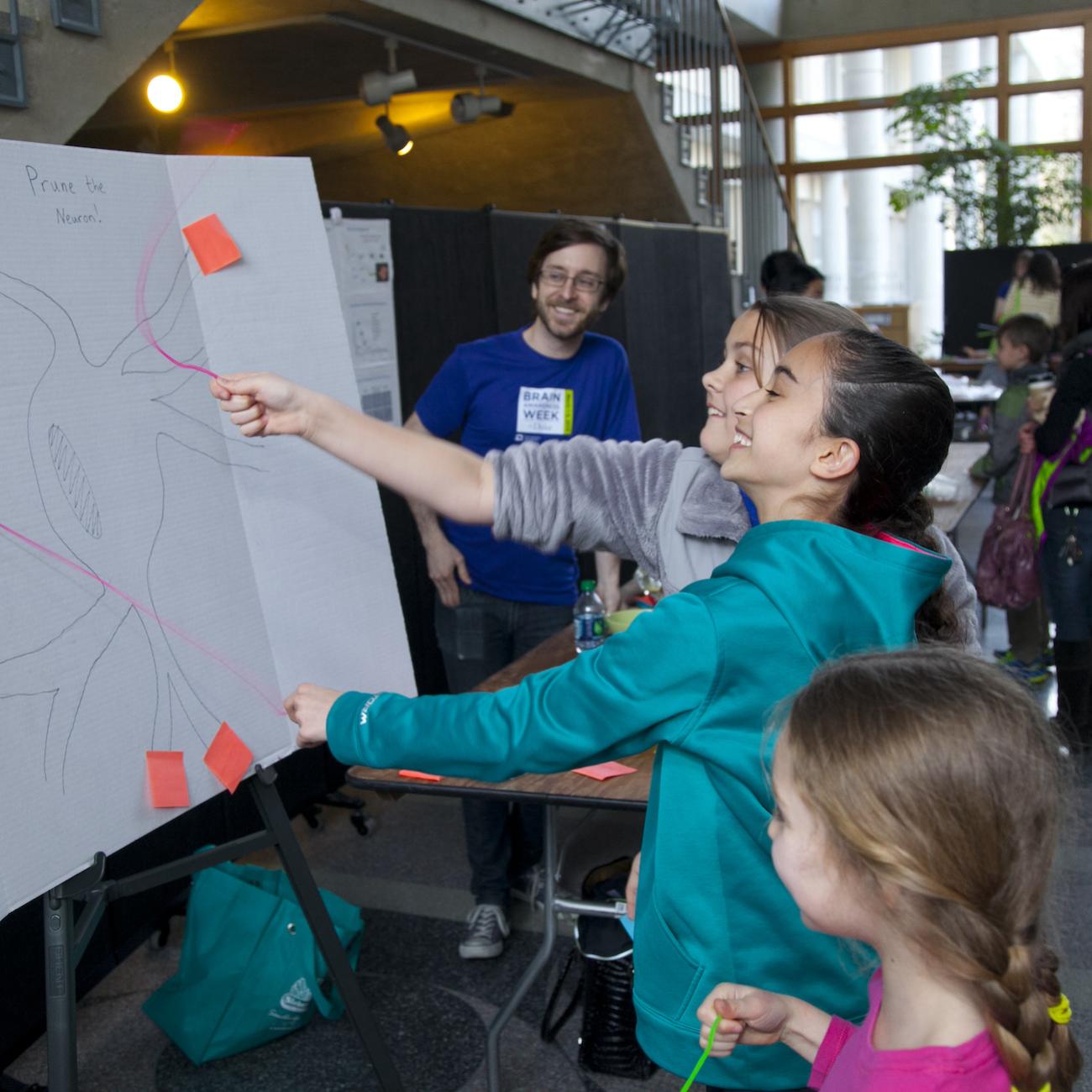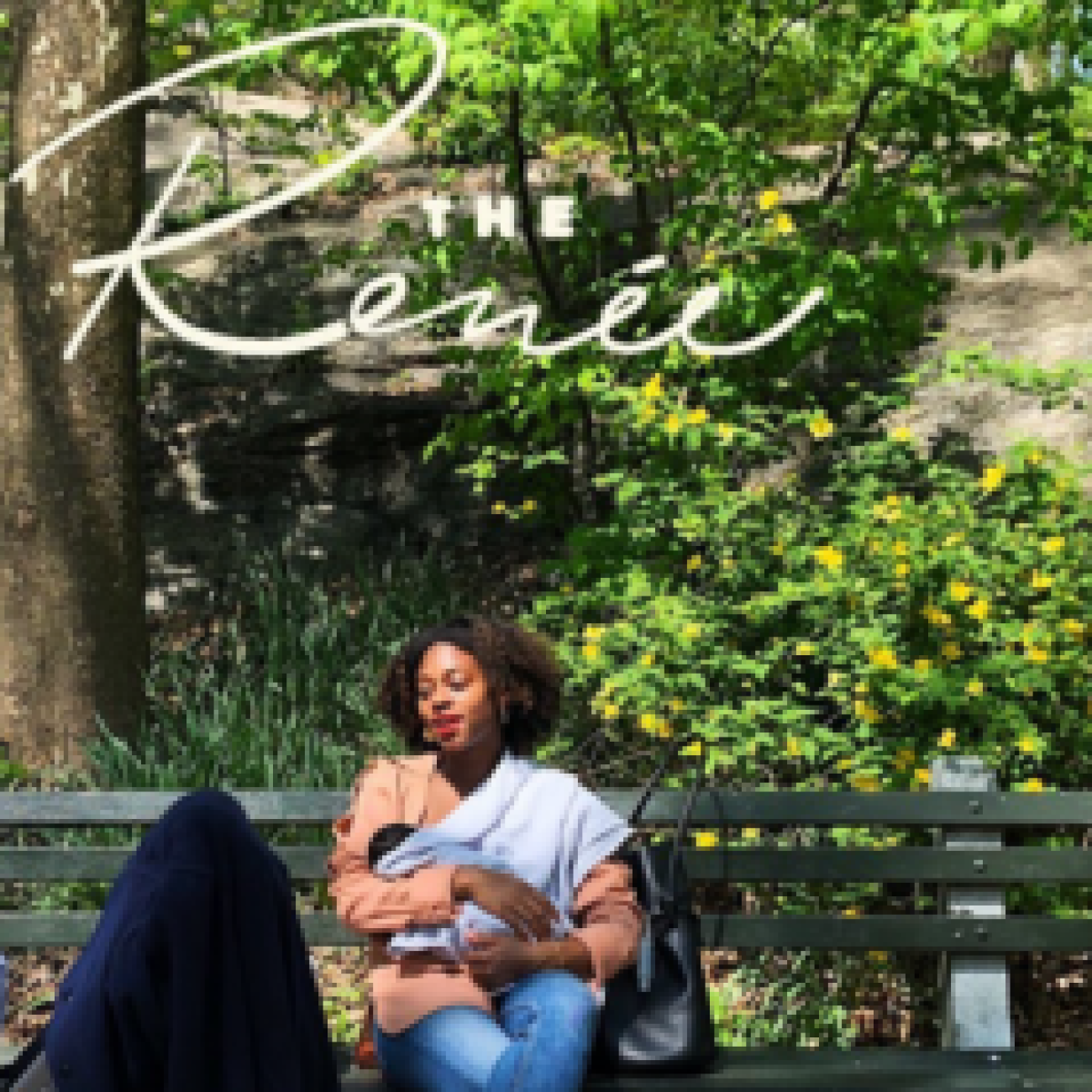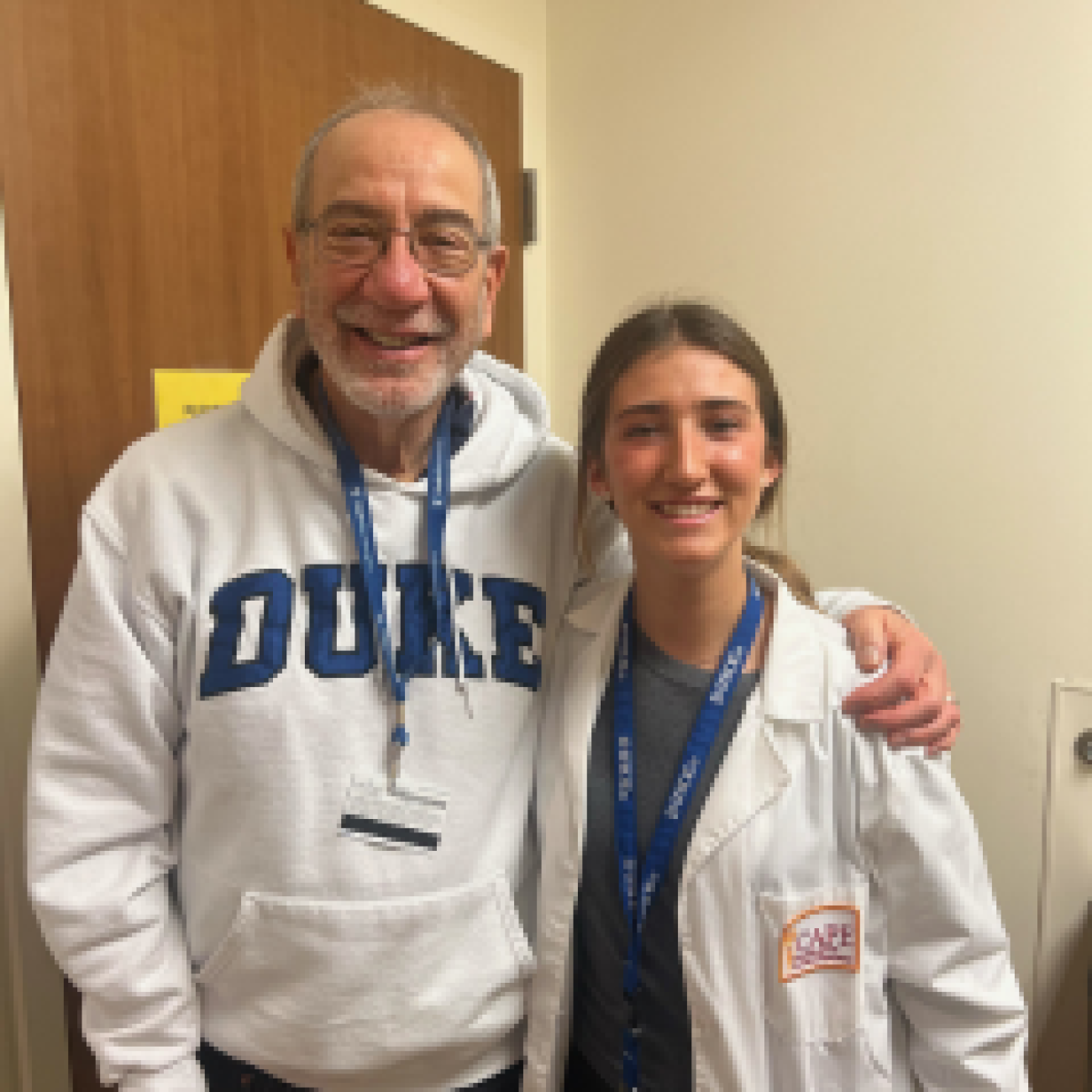Building Experiences That Matter
Experiences matter. They inform who we are and how we view the world. And they tell a story of how we interact with and relate to one another.
For Tom ’71 and Lesley Allin P’03 building better experiences for others has been their lives’ work. The Allins have helped to improve the experiences of: restaurant-goers dining at McDonalds in Europe, veterans accessing benefits and health care at the Department of Veterans Affairs, and patients receiving care at Duke Cancer Institute.
Experiences give our lives new meaning — and for Tom, his experience journey all started at Duke.
Tom came to Duke from a family of three West Pointers. While he was looking at colleges, Tom’s father was on tour in Vietnam; his brother was enrolled at West Point. Tom and his father penned back and forth about college choices. His father urged him to go to West Point, but Duke wasn’t an outside choice either. Tom’s aunt, Elizabeth Allin Clarke ’39, had graduated from the Woman’s College in 1939. In pursuit of a pre-medical educational track, Tom thought Duke was the better fit.
“At the time, I thought I was pre-med, which ended quickly freshman year in physics,” Tom says with a laugh.
When it all shook out, Tom was an economics major. His intellectual pursuits in the gothic wonderland made him incredibly astute financially. Now, he sees the wonderful opportunities Duke offers students as they become involved with research driving impact.
“Tom was self-actualized here,” says Lesley. “His communications abilities, his ability to research a subject and come out with a product were honed at Duke.”
In summers, Tom worked in the food industry at McDonalds. Although he never thought of it as a career, two years after Tom graduated he was quickly working his way up the management chain. Without really knowing it at the time, Tom was a natural in building favorable experiences for his customers. Then he called McDonalds’ corporate offices in Oak Brook asking if they needed someone who spoke French, which began Tom’s experience management journey.
Tom accepted a job as an operations manager at McDonalds International in Frankfurt, Germany. Soon after, he was heading up operations as the first president of McDonalds France in Paris. Tom was charged with building the McDonalds brand in a place that wasn’t totally unfamiliar with the golden arches of the monolith food chain. So, he launched its new flagship restaurants in France just as they were in America.
But Big Macs weren’t selling in Paris. In fact, in early iterations the chains in Paris were failing. To correct course, Tom and his management team went to their French customers and asked incisive questions to better understand their dining interests and decision-making. Continuing to pioneer these early principles of design thinking, Tom improved the experience of his customers. He discovered that to the French, time with family and friends was more important than the cuisine itself. French diners wanted to be jovial; they wanted to make memories. As a result, the French had a better time and bought more hamburgers, and business flourished, along with Tom’s career.
And, as it turns out, original research that Tom conducted as a Duke student helped prepare him for the challenge. In his research, Tom talked to state planners about the construction of the Durham Freeway, North Carolina Highway 147. Tom looked into why, out of the five possible locations for the construction, it ended up where it did. It had given Tom a glimpse into solving problems based on the experiences of the people the problems impacted most.
Home on the Range
Nearly 40 years later, Tom became a presidential appointee of President Barack Obama where he served as chief veterans experience officer under Bob McDonald, the secretary of Veterans Affairs. He felt honored with the civic charge. Tom used the same principles of design thinking to oversee the building of a veteran-centric website, offering those who served in the military the best experience possible for accessing their benefits and health care. The website, which was informed by and measured against the experiences of veterans, was so well received it became a model in Washington for several other federal agencies.
Then after the inauguration in January, 2017, Tom and Lesley moved down to Durham, North Carolina, adding it to the long list of places they’ve lived including Brussels; Frankfurt, Germany; Paris; London; Chicago; Palo Alto, California; Santa Fe, New Mexico; Manila, Philippines; and Washington, D.C., among others. The difference being: This was the first time they were able to choose where to live. They didn’t have an immediate community to call home, but they started building one like they had most recently in the Georgetown neighborhood in Washington. Fast forward to a new home near the Duke Forest and the Allins have found a sense of belonging in retirement among Durham’s rolling hills and horse pastures. Finding purpose in the community here has been rewarding.
“We’ve gotten more connected to this community and Duke than we would have if we’d lived in just about any other retirement community,” says Lesley. “It’s a unique opportunity.”
Lesley, too, shares a love for creating experiences with food, and a passion for Duke. As a French-trained chef, she’s done everything there is to do in the industry aside from catering. She and Tom owned restaurants in New Mexico. Lesley has worked as a food consultant for Marks & Spencer in the U.K., written a cookbook and taught cooking courses to loving foodies around the world.
Their son Logan ’03 and daughter-in-law Elizabeth Dixon Allin ’05 are Duke and Duke basketball fanatics as well. Tom and Lesley have immense pride sharing photos of them. In one photo, Logan and Elizabeth grin earnestly at an event with Coach K and his family in Napa, California.
“He was out there for the Jimmy V Foundation,” says Tom. “I think part of moving here was to make sure that my son and daughter-in-law were proud of me.”
Tom and Lesley’s daughter, Olivia, lives in Hillsborough, North Carolina, with her daughter Lily. Being this close to their granddaughter has been especially nice for the Allins. They enjoy taking Lily on outings to the Museum of Life and Science, whose exhibits and programs focus on STEM learning for children.
Luckily, the Durham community now has the Allins expertise to lean on as they engage with local causes; Tom is on the board for TROSA, a program in Durham which provides people with substance abuse disorders vocational training, education and care, and is working with NC4Vets, among other efforts.
Tom is also back at Duke as an adjunct professor at the Sanford School of Public Policy. He works with M.P.P. students in his course “Using Human Centered Design to Improve the Citizen Experience,” which has been a blockbuster for students. He’s also the faculty advisor of the Fuqua/Coach K Center on Leadership and Ethics.
A Gift With Measurable Meaning
Now firmly rooted in Durham, Tom and Lesley are passionate about continuing to work with smart people like those at Duke to drive impact on pressing issues in the community. When they saw CBS’ “60 Minutes” on Duke cancer researchers using a genetically modified poliovirus to fight deadly brain tumors, they were beyond intrigued.
After a conversation with Michael Kastan, M.D., Ph.D., the director of the Duke Cancer Institute, the Allins wanted to help. Dr. Kastan impressed upon them his code of excellence, and he expressed a need for a dedicated researcher. The Allins then generously created a $1 million pledge to fund research at the institute. With their gift, Tom and Lesley have created the Allin Family Fellow Fund, a permanent endowment to support a post-graduate physician after residency training, or a post-doctoral scholar, conducting cutting-edge research in the field of cancer. Since paying the pledge in early 2017, they have committed an additional $1 million charitable bequest to Duke to be added to the fund.
“What’s been nice for us about Duke is the way it’s been personalized,” says Tom. “The biggest thing is being part of this community and the feeling of closeness that it brings.”
Tom and Lesley both are cancer survivors. Their son Logan is a cancer survivor as well.
“Our relationship with the current Allin fellow at the Duke Cancer Institute, Jacob Kaufman M.D., Ph.D., is amazing,” says Tom. “Our care is now at Duke. It’s personal for us.”
Part of what makes it personal for the Allins is that the Duke Cancer Institute was designed to provide care that is patient-centered. The center is a one-stop destination for coordinated care between main treatment teams in medical, surgical, and radiation oncology, as well as palliative and supportive care across all fields of medicine, improving their outcomes and the service they receive.
“Knowing that our gift has a singular purpose and that it is creating measurable impact is key,” says Lesley.
In his research, Dr. Kaufman studies a subset of lung cancer that has mutations in a gene called LKB1. These mutations affect 20-25% of all patients with lung cancer, accounting for about 40,000 new cases each year. Despite accounting for the highest total loss of life in U.S. cancer patients, lung cancer research is currently underfunded, meaning the Allins’ gift is making even more possible.
Recently, researchers have found that patients with this mutation are very resistant to immunotherapy, a class of drugs that has revolutionized the treatment of lung cancer. Over the past year, Dr. Kaufman has sought to better understand why these cancers are resistant to identify possible strategies that could reverse it. In doing so, he may reveal novel precision treatment approaches for lung cancer patients that can be combined with immunotherapy to improve patient outcomes.
“It takes an incredible amount of support to help researchers like me succeed, especially when we are just starting in our careers,” says Kaufman. “Duke’s leadership has been committed to creating the best possible environment for success, through no small part due to contributions from donors in the Duke community, which is exemplified by Tom and Lesley Allin.
“Their endowment helps Duke attract and support young physician scientists, helping to set up the next generation of cancer researchers who will continue to make breakthroughs leading to more effective treatments and cures.”
With the Allins’ fellowship, Tom and Lesley hope to grant future cancer patients receiving life-saving treatments at Duke care that is personal and an experience that holds humanity dear.







